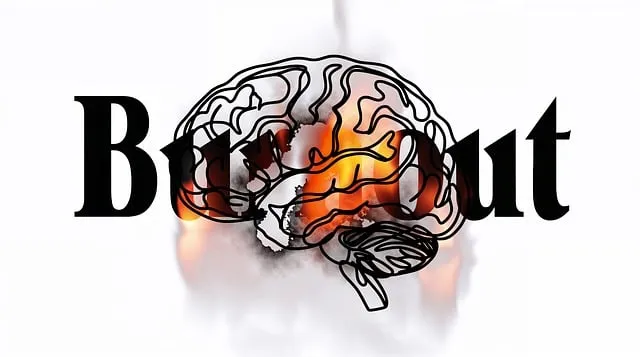The Englewood Kaiser Permanente behavioral health center is recognized for its leadership in crisis intervention training, deploying specialized Crisis Intervention Teams (CITs) comprising mental health professionals and first responders. These teams receive advanced training to swiftly assess and de-escalate emotional crises, preventing harm. Beyond crisis resolution, CIT training focuses on burnout prevention, positive thinking, and cultural sensitivity, enhancing care quality. The center's comprehensive programs empower community members with skills for recognizing early distress signals and promoting empathy, while prioritizing self-care routines. This proactive approach fosters resilience and improves outcomes for mental health challenges, creating a safer, more compassionate environment at the Englewood Kaiser Permanente behavioral health center.
Crisis intervention team (CIT) training programs are crucial for healthcare settings, as they equip staff with skills to manage mental health crises effectively. This article explores the vital role of CITs and focuses on the innovative approaches adopted by the Englewood Kaiser Permanente Behavioral Health Center in their training initiatives. We delve into the essential components of these programs, highlighting benefits and challenges while emphasizing the positive impact on patient care and outcomes, particularly drawing from the center’s experience.
- Understanding Crisis Intervention Teams: Their Role and Impact
- Englewood Kaiser Permanente Behavioral Health Center: A Focus on Training
- Essential Components of Effective Crisis Intervention Training Programs
- Benefits and Challenges: Implementing CIT Training in Healthcare Settings
Understanding Crisis Intervention Teams: Their Role and Impact

Crisis Intervention Teams (CITs) play a vital role in providing immediate support to individuals facing severe emotional crises. These teams, often composed of mental health professionals and first responders, are trained to swiftly assess and de-escalate situations, preventing potential harm. At the Englewood Kaiser Permanente behavioral health center, for instance, CIT members are equipped with the skills to handle various scenarios, from suicidal ideation to psychotic episodes, ensuring a swift and effective response.
The impact of CITs extends beyond immediate crisis resolution. Regular training programs emphasize essential aspects like burnout prevention, positive thinking, and cultural sensitivity in mental healthcare practice. By nurturing resilience among team members and fostering an understanding of diverse cultural backgrounds, these initiatives enhance the overall quality of care. This holistic approach not only benefits patients but also contributes to a more compassionate and effective mental health support system.
Englewood Kaiser Permanente Behavioral Health Center: A Focus on Training

The Englewood Kaiser Permanente Behavioral Health Center has established itself as a leader in crisis intervention training programs. Their focus on equipping individuals with effective conflict resolution techniques is commendable, addressing a critical aspect of mental health support. By fostering skills to navigate challenging situations, the center empowers community members to better assist those facing crises.
Moreover, Englewood Kaiser Permanente recognizes the importance of public awareness campaigns development and self-care routine establishment for better mental health. These initiatives not only enhance understanding but also promote proactive wellness strategies. Through comprehensive training, the center contributes to a more resilient and supportive community, where individuals are prepared to handle crises effectively while prioritizing their own well-being.
Essential Components of Effective Crisis Intervention Training Programs

Effective crisis intervention training programs are designed to equip individuals with the skills needed to respond to mental health crises competently and empathetically. At the Englewood Kaiser Permanente behavioral health center, such programs prioritize several essential components. First, they emphasize Mental Health Awareness, providing participants with a solid understanding of various mental health conditions and their symptoms. This knowledge enables them to recognize distress signals early on, which is crucial in preventing escalation into more severe crises.
Secondly, these training programs focus on Depression Prevention strategies, equipping individuals with tools to support those at risk or experiencing depressive episodes. This includes teaching active listening skills, empathy, and techniques for promoting self-care routine development for better mental health. By fostering a supportive environment and equipping participants with evidence-based interventions, crisis intervention team training programs aim to enhance resilience and improve outcomes for individuals facing mental health challenges.
Benefits and Challenges: Implementing CIT Training in Healthcare Settings

Implementing Crisis Intervention Team (CIT) training in healthcare settings offers significant benefits for both patients and providers. At the Englewood Kaiser Permanente behavioral health center, for instance, CIT programs have been instrumental in enhancing rapid response capabilities to psychiatric crises. Trained staff can now better de-escalate situations, reducing the need for physical restraints and promoting a calmer environment where patients feel safe and understood. This not only improves patient outcomes but also fosters a culture of compassion and effective care within the healthcare facility.
Despite these advantages, there are challenges associated with integrating CIT training into mental health education programs design. These include resource allocation, staff buy-in, and ensuring ongoing support for practitioners as they implement self-care practices to prevent burnout. Moreover, adapting traditional CIT models to fit diverse patient populations requires careful consideration and customization. However, with proper planning and continuous evaluation, these challenges can be overcome, leading to more robust and impactful mental wellness initiatives within healthcare settings.
Crisis intervention team (CIT) training programs, as exemplified by the innovative approaches at Englewood Kaiser Permanente Behavioral Health Center, play a pivotal role in enhancing healthcare settings’ ability to manage crises effectively. By focusing on evidence-based practices and real-world scenarios, these programs equip staff with the skills needed to de-escalate situations, improve patient outcomes, and foster better mental health care. While implementing CIT training comes with challenges, the benefits—from improved patient safety to enhanced staff resilience—make it a valuable investment for healthcare organizations, particularly in meeting the growing demand for behavioral health services.




